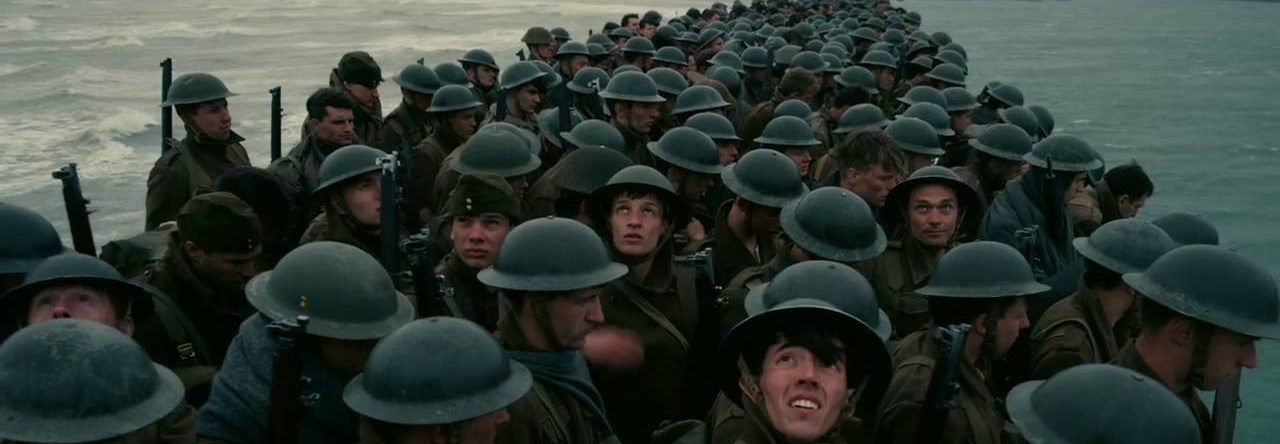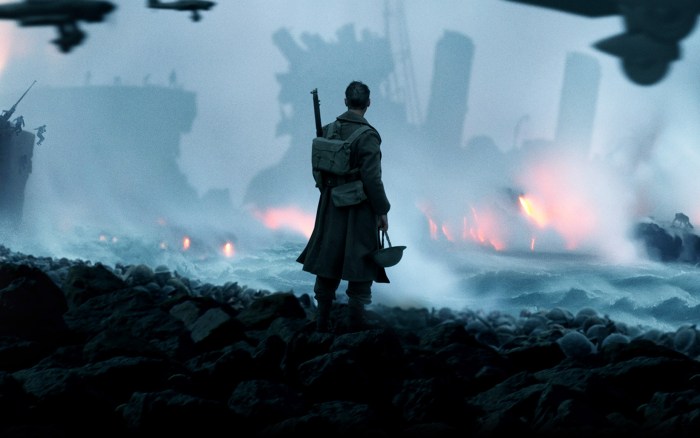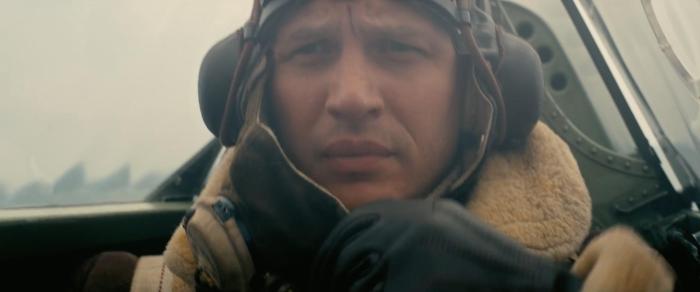
I’ve never been someone you want to engage with in a discussion about Christopher Nolan. For me, he’s always been one of those “middle of the road” filmmakers. I don’t love him enough to get excited about his work, and don’t dislike him enough to tear it down. I actually think, for a filmmaker, that’s the worst place to reside. I’ve found films like The Prestige and Memento to be solid and inventive films, but lacking in emotional engagement. I’ve found films like The Dark Knight and Inception to be good, mostly entertaining pictures that fell victim to an onslaught of overpraise. And then there’s Insomnia which, until yesterday, was my favorite Nolan film. And then came Dunkirk, yet another addition to a genre that has been blessed with riches. Is there really anything new to say or do with a war picture? Before Dunkirk, my response to that would have been a resounding “no.” After Dunkirk, it’s an emphatic “yes.” Dunkirk is a film that doesn’t ask the audience to figure anything out. It doesn’t ask the audience to do anything except ‘experience’, and that’s the most exciting cinema of all. Dunkirk is a masterpiece.

Just the idea of the Dunkirk battle is harrowing – 400,000 British and French soldiers stranded on a beach so close to their homeland that it can practically be seen; the enemy surrounding them from every angle; and very little chance of survival. Nolan breaks down Dunkirk into three sections that sort of blend together and become separate movements of the same symphony. “The Mole” covers the peer at Dunkirk where Commander Bolton (Kenneth Branagh) is overseeing the evacuation amidst random attacks by air and rifle fire from afar. Fionn Whitehead plays Tommy, a young British private who begins the film trying to find a way off the beach and spends the whole movie with the same goal, joined along the way by Alex (Harry Styles), a fellow private. “The Sea” follows Dawson (Mark Rylance) and his son, Peter (Tom Glynn-Carney), a civilian vessel commissioned, along with many others, to go to Dunkirk to rescue the stranded soldiers. Along the way, they pick up a shell-shocked soldier (Cillian Murphy). And “The Air” follows Farrier (Tom Hardy), a Royal Air Force pilot being sent to protect the men at Dunkirk, even though it’s so far off his route that he knows he’ll never get home. Each of these stories takes place over a certain period of time, with “The Mole” at one week, “The Sea” at one day, and “The Air” at one hour. Nolan juggles time throughout in unexpected ways.
What makes Dunkirk work for me is, to a large degree, that it feels like an anti-Christopher Nolan film. Nolan oftentimes falls flat because it’s just too much. Interstellar was way too much story packed into a movie that was far longer than it needed to me. There was so much science and exposition packed in that I couldn’t connect emotionally with a single character. Here, we know nothing about these characters except the immediacy of their circumstances and I found myself invested with each and every one of them. Unlike almost every other Nolan film, Dunkirk is a tight story, told in under two hours, that not only lessens its exposition, but just flat out abandons it. This allows us to experience this film, rather than process as we’re moving along. We don’t have to think about what one character means to another character, or how one plot point will effect another. We just sit and watch and experience. That is something Nolan hasn’t trusted an audience enough to do before. Now that he has, it has paid off in spades.

Another issue I’ve had with Nolan films is Hans Zimmer. There’s no denying that the man is a master musician but his work with Nolan has generally produced arrangements that overwhelm the story on screen. I think back to The Dark Knight Rises and Interstellar and how there were moments in those films when I was completely removed from what was happening on screen by a score that didn’t complement, but commanded. Dunkirk remedies that issue. The score and the sound design are so interwoven that it’s difficult to tell where one begins and the other ends. This produces a sort of unyielding audio train that chugs through the entire picture, never ceasing its momentum. Because of this, when it does stop at the very end, it packs one hell of a punch. Nolan’s use of the stop watch becomes the musical theme of the picture, though it’s far more sound design than score. I left remembering that sound effect as much as anything else, and I can’t think of the last time a sound design had that kind of effect on me.
Singling out performances is difficult because they’re all so on-point, and they’re all so understated. These aren’t showy actor pieces here. Veterans like Mark Rylance, Kenneth Branagh, and Tom Hardy excel in doing a lot with a little, and that’s on full display in Dunkirk. Words are neither used nor necessary to convey most of their most intense emotional moments. The same can be said for newcomers Fionn Whiteheard, Harry Styles, and Tom Glynn-Carney, who keep the film alive with their energy and this very real sense that these are just kids caught up in a very dangerous war. It’s that sense of loss and potential loss that hangs over Dunkirk without our having to see gruesome depictions of battle. This isn’t Saving Private Ryan where we have body parts and blood spurting everywhere. We see a few bodies, here and there, but they only serve to echo the sentiment that war takes the very best and brightest of a nation. With a story as powerful as Dunkirk, Nolan’s “less is more” strategy pays off in big ways.

It’s difficult for me to believe that I’m going to find a more complete, more engrossing film in 2017 than Nolan’s Dunkirk. It’s a perfect film in a lot of ways. Technically, it doesn’t miss a bit. It’s so tightly wound that you keep waiting for it to just shatter, but it doesn’t. It keeps going on and on, much like the brave men who waited on that beach for help to come. The ending of the film, which I normally would have found overwrought and melodramatic, worked for me in that it drove home this idea that there can be bravery in defeat. Just because you lose a battle doesn’t mean you’ll lose the war. I really can’t think of a better way to end the film than with those famous words the battle itself brought about. Dunkirk is my very favorite film of 2017 and the first Christopher Nolan film I’ve truly loved. For the first time, I didn’t feel like he was trying to make me feel anything. He just presented something remarkable, asked that I experience it, and let the emotion happen on its own. Maybe he needed to break free of his brother to make that happen. Maybe he just needed a personal story to tell. Whatever the reason, I’m incredibly glad he decided to make Dunkirk, a truly great war film.




